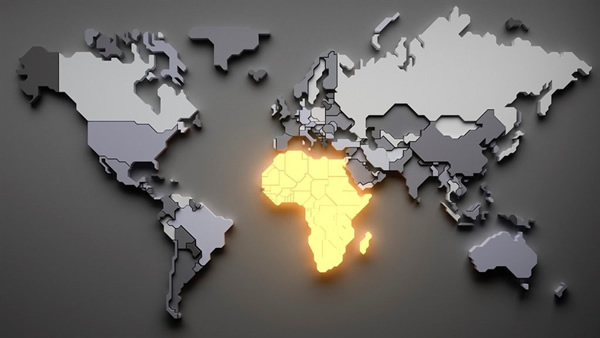
To address the future professional needs of the welding industry in Africa, the Southern African Institute of Welding (SAIW) has signed an SLA with The Welding Federation for Africa (TWF) to drive productivity in manufacturing across the continent.
The growth potential of the African welding market is directed, in part, by growing urbanisation and significant reserves of raw materials, and this alliance is expected to meet a multitude of industries’ welding needs.
Newly-elected TWF Executive Director Ayo Adeniyi who is based in Nigeria, says; “Through the umbrella of TWF, SAIW and a host of other African stake-holding associations, we are working assiduously to build and integrate Africa’s manufacturing industries. Firstly, to increase the capacity of member states to competitively attract and sustain inflow of investments, and to encourage trade of products and services across member states for sustained economic growth.
“The TWF, therefore, has a firm commitment to assist every member country in Africa to build their respective national welding capabilities. We will do this through policy supports, skill development, and industry-care networks. An Africa with a capacity to support metal production for infrastructural need is generally beneficial to all Africans and even investors in Africa.”
Boosting certification awareness
Significant to the TWF and SAIW partnership is a strong focus on ISO 3834 certification, which is an essential partner to quality-management standard ISO 9001. ISO 3834 allows certification bodies to assess a manufacturer’s ability to meet customer and regulatory requirements and further endorses a company’s welding employees as competent. It also boosts a manufacturer’s capacity to sell its products in domestic and international markets.
However, Adeniyi reports; “Awareness by metal production companies of the operational productivity and market position benefits of implementing the ISO 3834 system is unfortunately very low across the continent and the SLA between TWF and the SAIW is tailored to address this gap.”
TWF’s priority is the development of a tailored Welding Inspector training programme which is being developed by a committee of experts from across the continent to specifically address gaps in the African manufacturing space. “The SAIW has a welding inspector program that has been successful for decades and it is therefore being used as a reference template for the development of TWF’s continental welding inspection scheme,” says Adeniyi.
A harmonised approach
TWF’s Welding Inspectors scheme when launched will offer a harmonised template for the development, assessment and certification of welding Inspectors and will provide a solid foundation for continuous review and updates in line with prevailing industrial realities.
Adeniyi stresses that the scheme will not compete, but rather will complement the efforts of the International Institute of Welding (IIW) member countries in Africa including the SAIW and the Nigerian Institute of Welding (NIW). In so doing the new welding inspectors scheme will promote the IIW’s goal of improving the global quality of life through the application of welding technology.
SAIW Executive Director and TWF Chairperson John Tarboton adds; “I believe strongly in the power of alliances and continental collaboration is vital at this critical juncture in Africa’s manufacturing sector amidst the new COVID-19reality facing the globe. Future training programmes from the TWF will also expose welders, fitters, and pressure vessels inspectors to world-class quality standards to ensure weld production excellence and will help position the continent as a contemporary welding pioneer in the years to come.”


